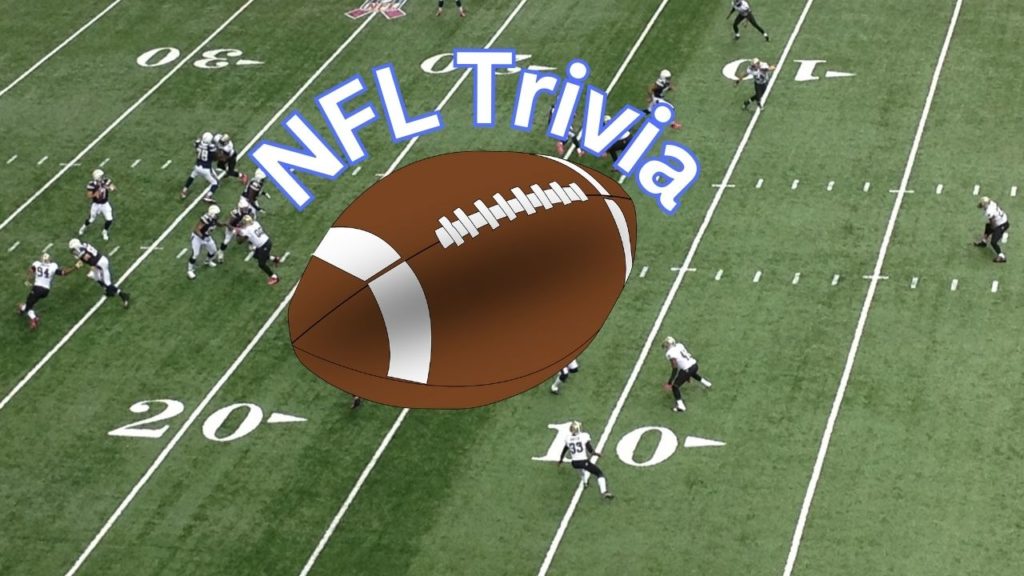
At NFL Trivia, we produce books, articles, and videos about NFL Football. Top 10 lists, info about teams, players, coaches, and super-bowls are part of this site.
Superbowl NFL Trivia
Each week, we post a new article about the next Superbowl in our list. We started with Superbowl I, and have added a new game each week, until we are caught up. In addition to our article, we also have YouTube videos that you can watch to learn an abbreviated trivia about each game.
Winning Teams
As we research each Superbowl for it’s article and trivia video, we do a deep dive into each of the teams that made it to that year’s Superbowl game. Although not published as videos, this reference material comes into play while creating our game, player and coach videos that we publish every week.
Winning Coaches
We do a deep dive into each of the winning coaches, and also publish a YouTube video showcasing the coach that won that particular Superbowl game. We cover their background, coaching career, and personal life so you can know more about the legendary coaches of the winning Superbowl teams.
Winning Super Bowl coaches often possess a combination of key characteristics and skills that contribute to their success. These characteristics include:
- Leadership: Successful Super Bowl coaches are exceptional leaders who can motivate and inspire their teams. They set the tone for the entire organization and foster a winning culture.
- Adaptability: Super Bowl coaches are adaptable and able to adjust their strategies to counter their opponents. They recognize the need for flexibility and make in-game decisions based on the circumstances.
- Game Strategy: They have a deep understanding of the game and develop effective game plans. Their strategic acumen allows them to exploit their team’s strengths while exploiting the opponent’s weaknesses.
- Player Management: Effective Super Bowl coaches know how to manage their players, balancing discipline and motivation. They build strong relationships with their athletes and ensure that they are mentally and physically prepared.
- Preparation: Super Bowl coaches are meticulous in their preparation. They leave no stone unturned, studying opponents, analyzing game film, and formulating comprehensive plans for success.
- Time Management: They are skilled in time management, ensuring that they use practice time efficiently and maximize the time spent with their players. This allows for consistent improvement and readiness.
- Decisiveness: Successful coaches are decisive in making critical in-game decisions. They can handle high-pressure situations and make choices that can impact the outcome of the game.
- Communication: Effective communication is vital. Super Bowl coaches can effectively convey their strategies, objectives, and expectations to their coaching staff and players. They maintain open lines of communication within the team.
- Motivation: Coaches inspire their players to perform at their best, especially in high-pressure situations like the Super Bowl. They can extract the best from each athlete, instilling confidence and a winning mindset.
- Resilience: Super Bowl coaches must be resilient, capable of bouncing back from adversity and keeping their teams focused and determined, even in the face of setbacks.
- Team Building: They excel at team building, bringing together players with diverse personalities and strengths to create a cohesive unit. Building strong team chemistry is essential for success.
- Preparation for the Unknown: Super Bowl coaches anticipate the unexpected. They prepare their teams for unforeseen challenges, ensuring they can adapt on the fly.
- Consistency: Consistency in performance, decision-making, and discipline is a hallmark of successful Super Bowl coaches. They don’t let the pressures of the big game affect their approach.
- Legacy and Tradition: Some Super Bowl coaches create legacies and traditions within their organizations. These traditions can motivate future generations of players and coaches.
- Adaptation to Modern Trends: Great coaches are not stuck in the past; they adapt to modern trends and innovations in the sport. They embrace technology and new training techniques.
It’s important to note that each successful Super Bowl coach may emphasize different characteristics to varying degrees. The ability to balance and adapt these qualities based on the unique needs of the team and the circumstances of the game is a hallmark of a winning Super Bowl coach.
Most Valuable Players
Each Superbowl has a player that wins the MVP award, for most valuable player. We dive deep into that player, looking at the early years, playing career, and life off the field.
The Super Bowl MVP (Most Valuable Player) is typically determined based on the following criteria:
- Performance: The MVP is usually awarded to a player who had a standout performance during the Super Bowl. This often includes statistical achievements like passing yards, touchdown passes, rushing yards, receptions, sacks, interceptions, and key plays that impact the game’s outcome.
- Impact: The player’s impact on the game is crucial. This involves considering not just the quantity of plays but also their quality. Players who make game-changing plays, such as scoring touchdowns, crucial passes, or game-saving defensive actions, are more likely to be considered.
- Leadership: Leadership and composure under pressure are essential. Quarterbacks are often favored because of their leadership role and their ability to control the game. However, other positions, such as defensive players or running backs, can also demonstrate leadership and have a significant impact on the game.
- Game Result: The MVP is typically chosen from the winning team. While players on the losing team can have outstanding performances, the MVP award is usually given to a player from the championship team.
- Media Votes: Media members, including sports writers and broadcasters, play a significant role in selecting the Super Bowl MVP. They vote on the MVP based on their observations and analysis of the game.
- Fan and Player Vote: In some cases, there may be a fan or player vote for the MVP. These votes may carry less weight than the media vote but can influence the decision.
- Historical Context: The player’s performance is often evaluated in the context of Super Bowl history. If a player breaks a Super Bowl record or achieves a significant milestone, it can boost their MVP candidacy.
- Panel Decision: Ultimately, the MVP is decided by a panel of media members or representatives of the NFL, who consider all of the above factors to make their decision.
It’s important to note that the criteria for determining the Super Bowl MVP can vary slightly from year to year, and there is room for some subjectivity in the selection process. Different Super Bowl games may prioritize different aspects of performance based on the nature of the game and the standout moments that occur.
Join us on YouTube at NFL Trivia
You can watch videos dedicated to each Superbowl, the Winning Coach, and the Most Valuable Player for any given season.


